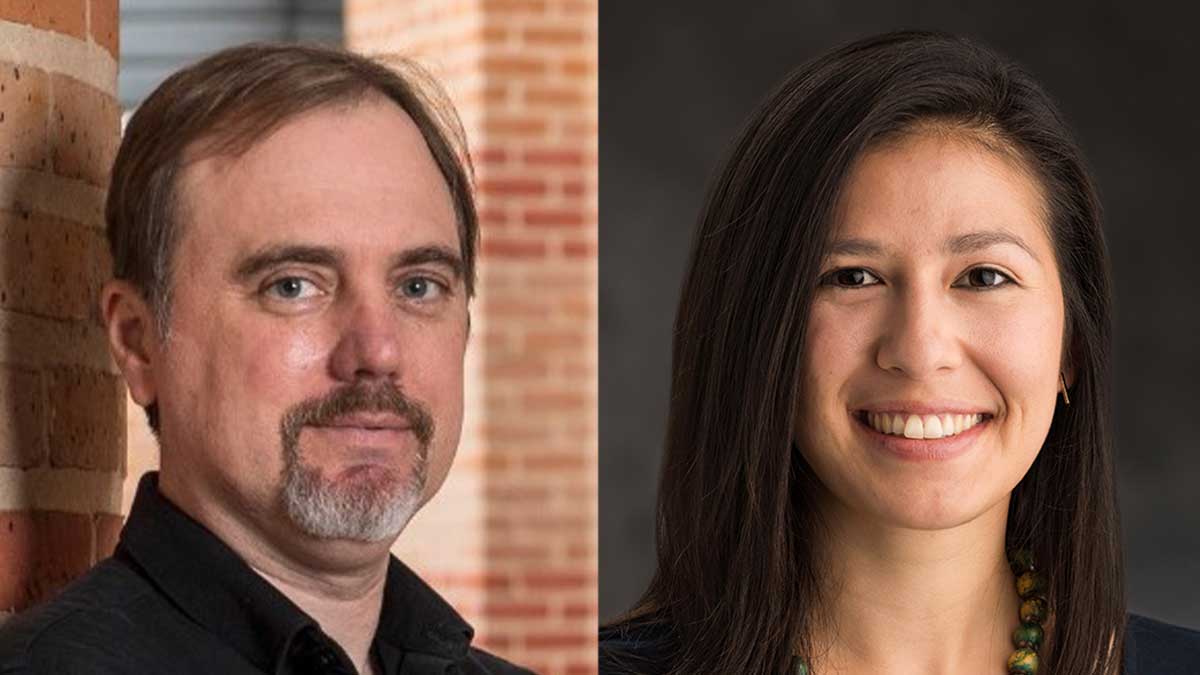Todd Treangen likens efforts to detect the omicron variant of the virus that causes COVID-19 in Houston’s wastewater to reconstructing a forest from a pile of woodchips.
“We’re dealing with small sequence fragments from the SARS-CoV-2 genome, derived from a mixture of variants of concern. So not only is this a computationally challenging problem to identify a specific variant, there’s uncertainty built into the process,” said Treangen, assistant professor of computer science (CS).
In collaboration with Lauren Stadler, assistant professor of civil and environmental engineering and project lead at Rice, Treangen has confirmed the presence of the omicron variant in eight of the city’s 39 wastewater treatment plants. People infected with COVID-19 shed the virus in their feces.
Traces of the omicron variant were found in raw, untreated wastewater samples taken Nov. 29 and 30 from sites across Houston, which indicates the presence of the variant in the community. On Dec. 6, a fully vaccinated Harris County woman became the first person in Texas to test positive for the omicron variant.
The potential impact of the variant remains uncertain. Health authorities in the federal government are working to determine if omicron is more transmissible or lethal than other strains.
Led by Loren Hopkins at the Houston Health Department, Stadler’s group has been collaborating with the city’s team and Kathy Ensor, Noah G. Harding Professor of Statistics, to collect and analyze wastewater samples since soon after the COVID-19 pandemic started in 2020.
Treangen joined the team to sequence wastewater samples in an effort to understand which variants were circulating in Houston. Samples are collected weekly from the city facilities and tested in Stadler’s lab in George R. Brown Hall on the Rice campus and at the Houston Health Department Laboratories.
“We can’t ever have 100 percent certainty in the detection of an emerging variant in wastewater samples,” Stadler said. “We look for unique signatures of the variant genomes in wastewater to screen for their likely presence. Screening wastewater has been effective for the early detection of emerging variants of concern in our community.”
In July, the Treangen Lab received a contract from the Centers for Disease Control and Prevention (CDC) to develop the Harvest Variant software for real-time variant tracking of SARS-CoV-2. The ability to conduct real-time monitoring aids in the understanding of changes to SARS-CoV-2 infectivity, transmissibility and vaccine efficacy.
Treangen’s research group has compiled a list of mutations in the SARS-CoV-2 spike protein that may make the omicron variant more resistant to neutralizing antibodies, including those from vaccinations.
Graduate students in Treangen’s and Stadler’s research groups are involved in the ongoing COVID-19 efforts. Treangen praised the contributions of his lab’s Nicolae Sapoval, a third-year doctoral student in CS.

